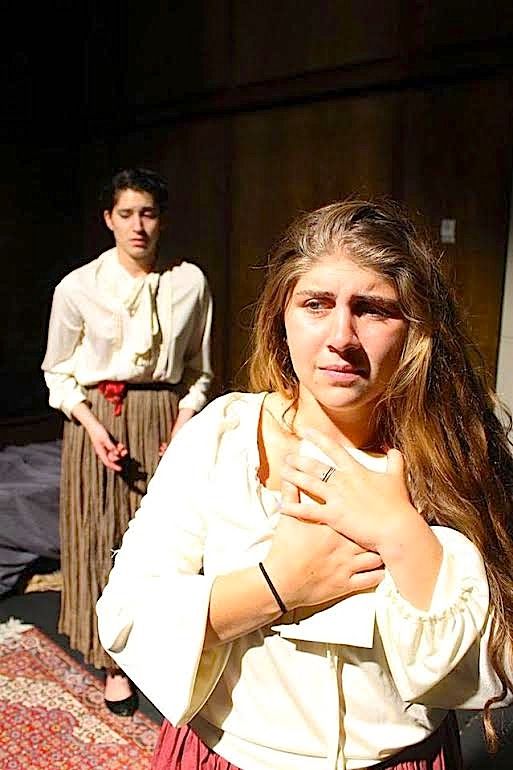When Anoush Baghdassarian wrote a play about the Armenian Genocide during his senior year at Great Neck South High School, she said, she only intended it to be a learning tool.
Now Baghdassarian, who studies psychology and literature at Claremont McKenna College in Claremont, Calif., can say she is a published playwright, with her play, “FOUND,” published by Xlibris.com, and available at amazon.com and barnesandnoble.com.
“I just want people to know that this play is available to put on in communities, and to give to students to learn about the genocide,” she said.
As part of that effort, she said, she is having a book signing on Jan. 8 at the Barnes and Noble in Manhasset at 1542 Northern Blvd.
Baghdassarian said she is not really interested in making money from the play, but that she wants instead to raise awareness and educate people about the Armenian Genocide.
April 24, 2015 will mark the 100th anniversary of the start of the genocide, which claimed the lives of 1.5 million Armenians by the Ottoman Empire from 1915 through 1916.
Baghdassarian said with the anniversary coming up this is the right time for schools as well as churches, temples and mosques to use to help others learn about the “forgotten genocide.”
The play centers on an Armenian woman named Lucine, who lives through the genocide.
The stage is split in two, with one side of the play being a young Lucine in 1915, and the other side being Lucine in 1925, Baghdassarian said.
Baghdassarian, who is of Armenian decent, said the show starts in 1915, with Lucine’s home being invaded and her brother being kidnapped by the Ottomans. The rest of the play involves Lucine, in 1925, writing out the events as she saw them during the genocide.
As Lucine’s character writes about her experiences on stage them, they are played out on the 1915 portion of the stage.
The play’s plot is driven by Lucine trying to find her brother, and her worries about what happens to him.
“The most relevant message to spread in Great Neck would be to teach people that when Hitler was planning the annihilation of the Polish Jews, he justified himself by saying, ‘who, after all, speaks today of the annihilation of the Armenians?,’” Baghdassarian said. Hitler said this during his “Obersalzberg Speech” he gave on Aug. 22, 1939.
Baghdassarian directed the play initially during May and June of 2013 at the Levels Teen Center at the Great Neck Library, she said.
The play then was produced at the Armenian Church of the Holy Martyrs in Bayside, Queens, later than June.
The show eventually moved to her college in California in 2014, where she directed, produced and acted in it, Baghdassarian said.
Baghdassarian said she has been involved in theatre since she was in the fifth grade, and that she has always loved to write.
She said that while taking a playwriting class she was required to write a monologue, which would eventually, after a time, morph into the first scene of “FOUND.”
Baghdassarian said she has been trying to educate people about the Armenian Genocide since she was in the sixth grade.
She originally starting by doing educational posters, and eventually would move on with her drive to educate with the play, she said.
“People have said to me ‘someone asked me about the Armenian Genocide and I knew it because of your presentation,’” Baghdassarian said.
She said many of her family members were killed during the Armenian Genocide, and that various members of her family also had to escape to other areas of the world, including Egypt and South America.
Baghdassarian said she is currently in a screenwriting class at Claremont McKenna College where she is working on a screenplay about the Palestine-Israel conflict.
She said she eventually wants to practice law in the human rights field, and would also like to write plays about human rights issues as well, that would be both entertaining and educational.



